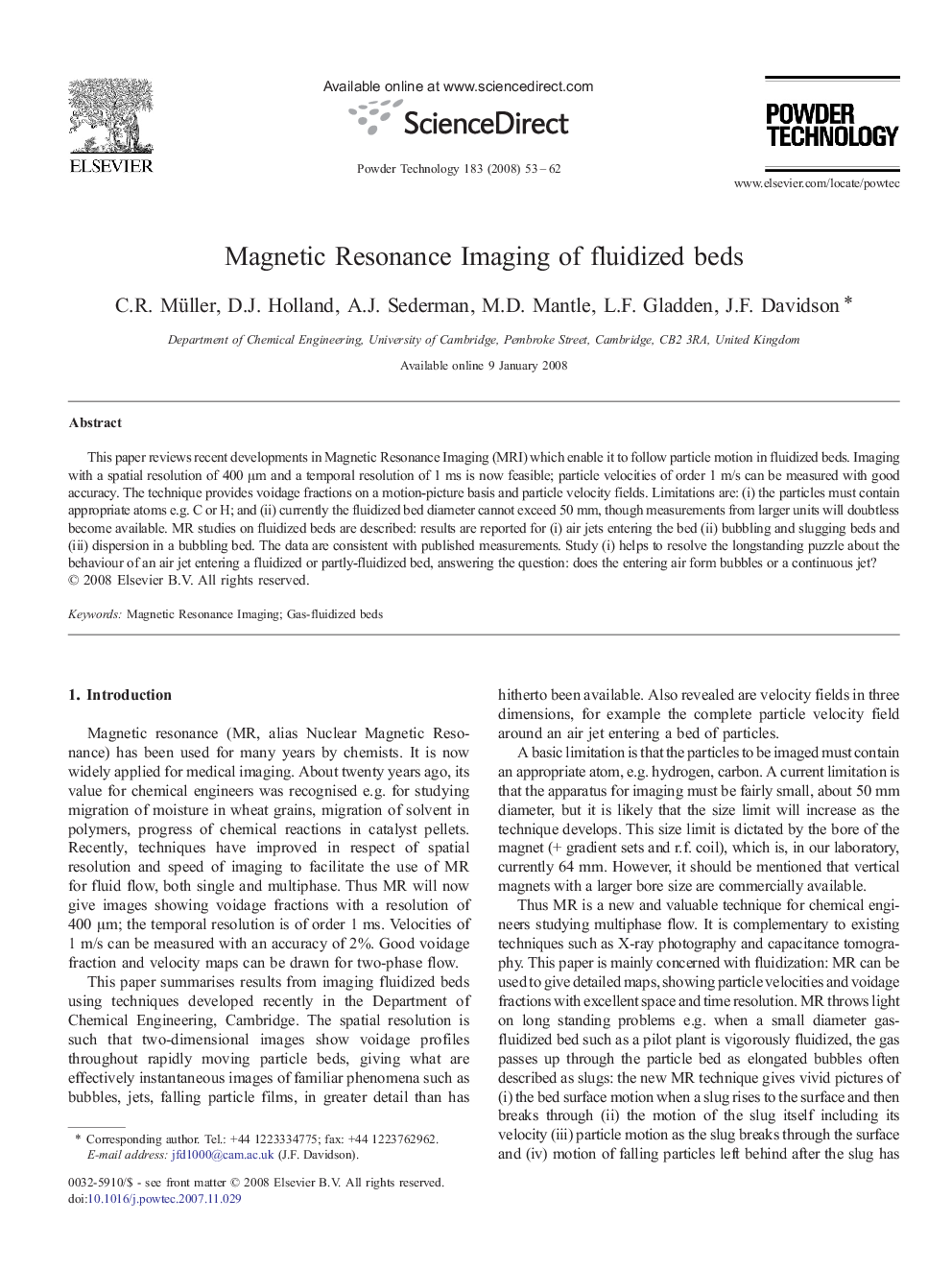| کد مقاله | کد نشریه | سال انتشار | مقاله انگلیسی | نسخه تمام متن |
|---|---|---|---|---|
| 238520 | 465761 | 2008 | 10 صفحه PDF | دانلود رایگان |

This paper reviews recent developments in Magnetic Resonance Imaging (MRI) which enable it to follow particle motion in fluidized beds. Imaging with a spatial resolution of 400 μm and a temporal resolution of 1 ms is now feasible; particle velocities of order 1 m/s can be measured with good accuracy. The technique provides voidage fractions on a motion-picture basis and particle velocity fields. Limitations are: (i) the particles must contain appropriate atoms e.g. C or H; and (ii) currently the fluidized bed diameter cannot exceed 50 mm, though measurements from larger units will doubtless become available. MR studies on fluidized beds are described: results are reported for (i) air jets entering the bed (ii) bubbling and slugging beds and (iii) dispersion in a bubbling bed. The data are consistent with published measurements. Study (i) helps to resolve the longstanding puzzle about the behaviour of an air jet entering a fluidized or partly-fluidized bed, answering the question: does the entering air form bubbles or a continuous jet?
Graphical AbstractDevelopments in Magnetic Resonance Imaging (MRI) enable it to follow particle motion in fluidized beds. Voidage and velocity fields are shown for (i) air jets entering the bed (ii) bubbling and slugging beds, see snapshot of rising bubble. Thus MRI gives two-dimensional motion pictures of fluidized beds. It can also follow dispersion of selectively ‘excited’ particles.Figure optionsDownload as PowerPoint slide
Journal: Powder Technology - Volume 183, Issue 1, 18 March 2008, Pages 53–62